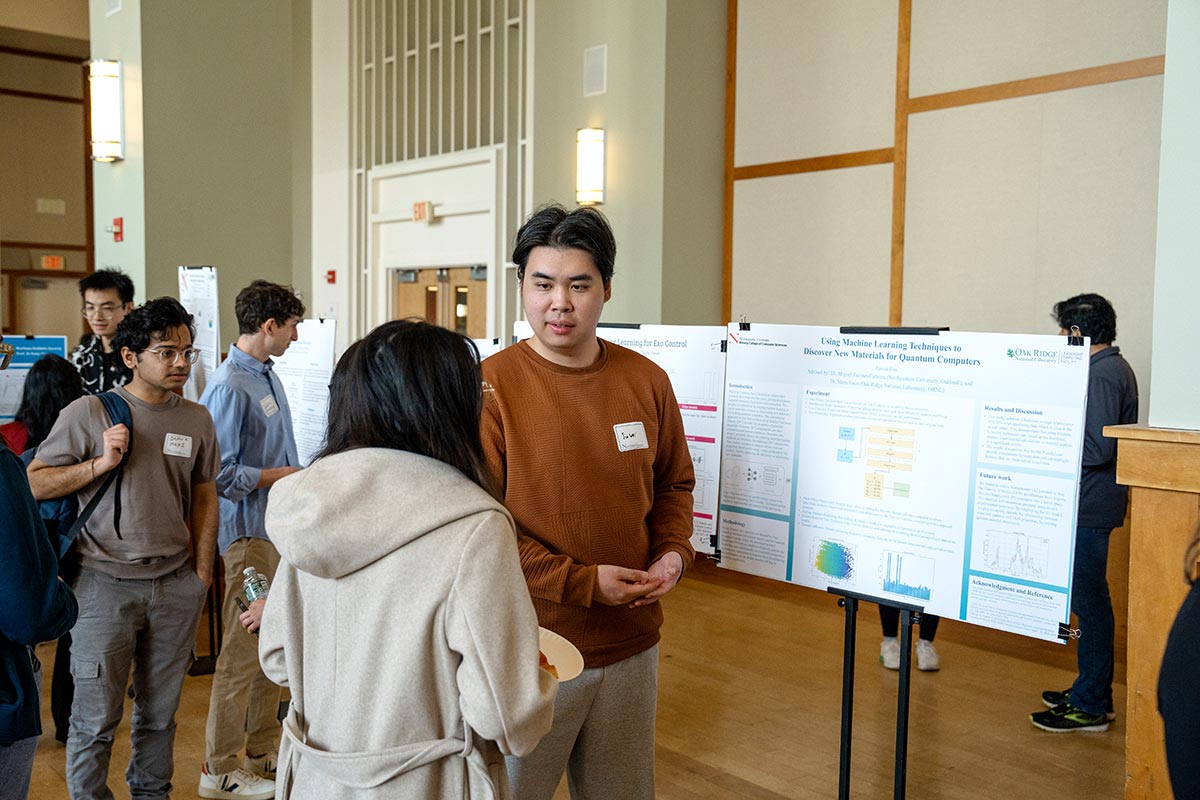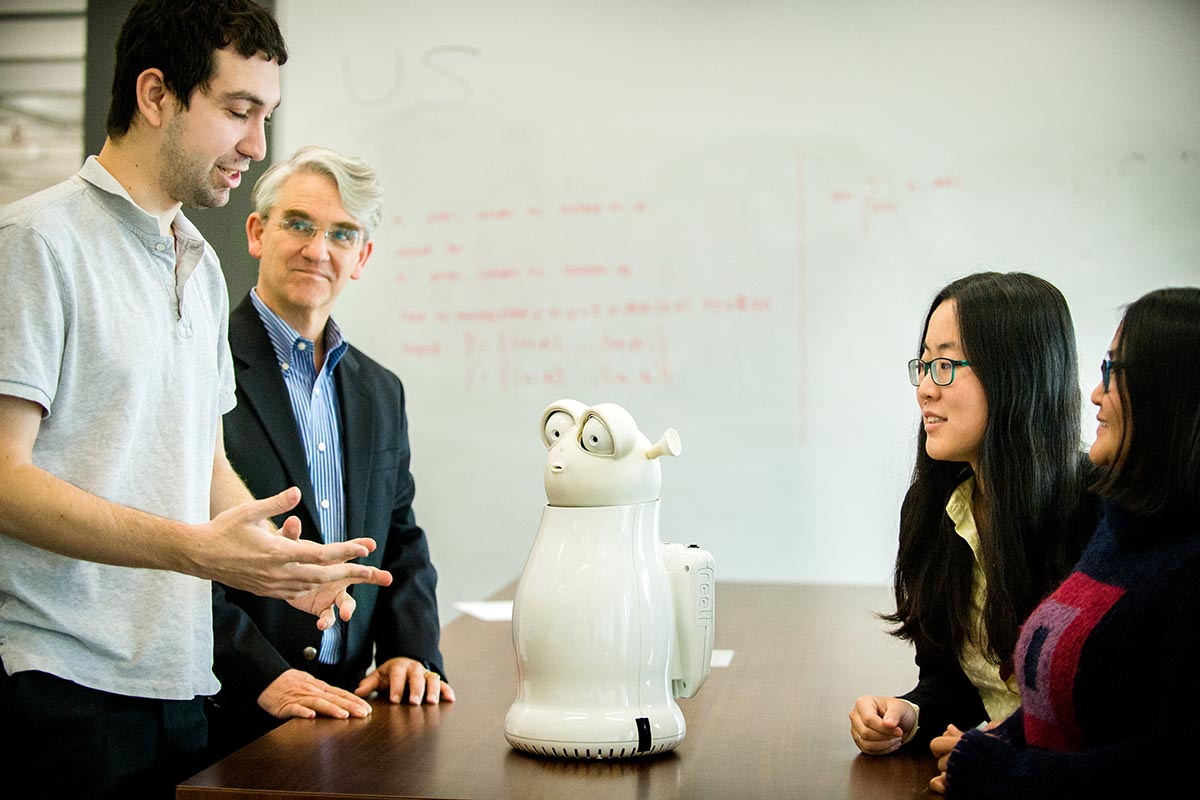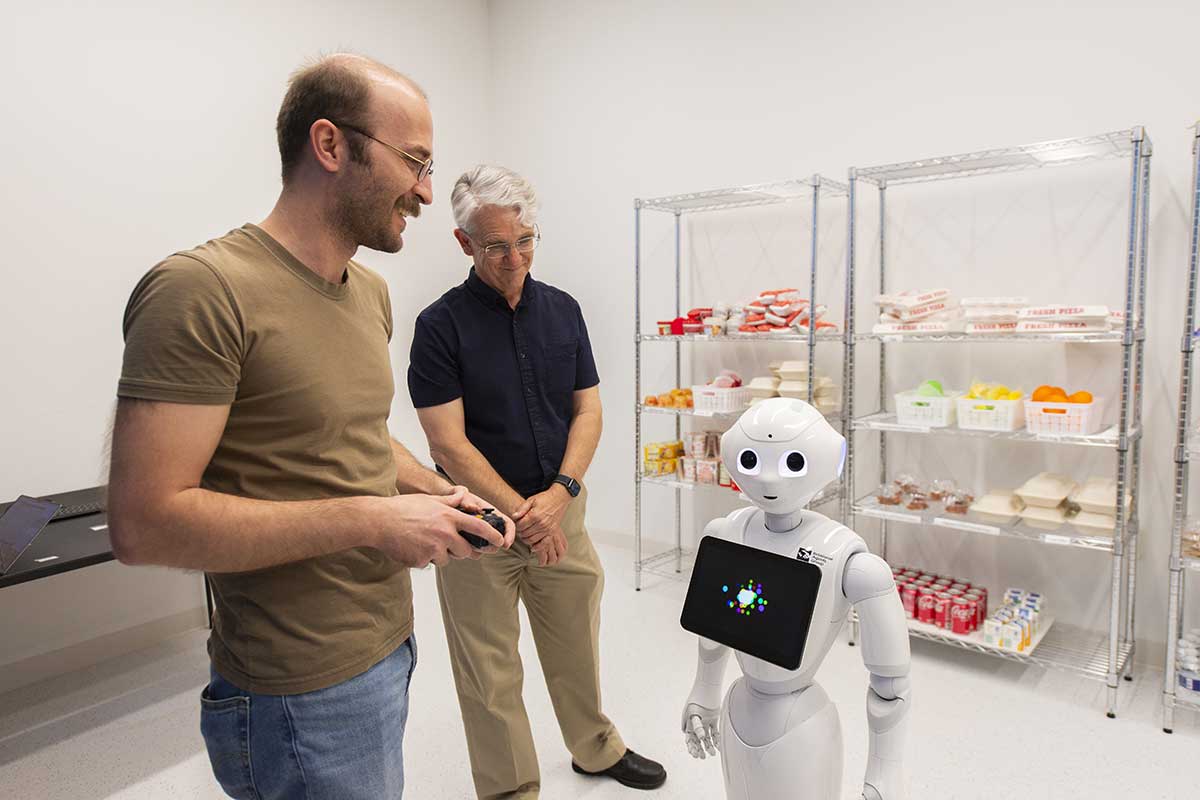
MS in Artificial Intelligence
The MS in Artificial Intelligence provides a comprehensive framework of foundational algorithms, theory, and practice in the emerging field of AI, equipping you with the knowledge you’ll need to explore, design, and implement AI systems. Specialize in computer vision, natural language processing, robotics, intelligent interaction, machine learning, or knowledge management as you pursue a holistic and interdisciplinary course of study incorporating data science, machine learning, deep learning, and robotics.
Program highlights
Locations
Boston, Portland (admit term varies by location), Silicon Valley
Credit hours
32 total semester hours required
Schedule
Core courses: Fall, Spring, Summer
Program modality
In person

Take your career to the next level
A master’s in artificial intelligence from Khoury College combines the “three pillars” of AI — technical, applied, and social/ethical — that empower students with what they need to be a meaningful part of the AI workforce. Learn more.
Campus locations
-

Boston
Located in the heart of Boston, Northeastern’s oldest campus is home to a vibrant community of students, researchers, and faculty working across disciplines to build a better world through CS.
-

Portland
The collaborative nature of Northeastern’s Roux Institute in Portland connects students with corporate and governmental power players across the Northeast, and beyond.
-

Silicon Valley
Located in the heart of the tech revolution (and where it began), the San Jose campus offers students the opportunities to advance the CS field in a program known for industry connections and diverse work opportunities.
Applications and admissions

Deadlines
Domestic
Fall 2025 semester: August 1
Spring 2026 semester: December 1
International
Fall 2025 semester: May 1
Spring 2026 semester: October 1
Meet our faculty
Get to know the engaged, experienced professors who are here to support you every step of the way.

Ehsan Elhamifar
Ehsan Elhamifar is an associate professor at Khoury College, affiliated with the College of Engineering. The overarching goal of his research is to develop AI that learns from and makes inferences about visual data analogous to humans.
No tech background? Check out the Align program
If you don’t have a background in computer science, then the Align MS in Computer Science might be for you. This program offers a direct path to a master’s degree — no prior tech experience required.
Institutes and Centers
Where engaged students, expert faculty, experienced research scientists, and industry and government partners work together to solve big challenges.
Related programs
-

MS in Computer Science
The MS in Computer Science at Khoury College will prepare you for fulfilling careers through rigorous courses, cutting-edge research, and hands-on experience.
-

MS in Robotics
In the interdisciplinary MS in Robotics, you'll gain a comprehensive understanding of the algorithms, sensors, control systems, and mechanisms of robotics.
-

MS in Game Science and Design
The Master of Science in Game Science & Design is a unique interdisciplinary program that prepares students to meet industry needs by interlacing science and design.
Have questions?
Find answers in our FAQ, or complete this form to learn more about the MS in Artificial Intelligence program. One of our enrollment counselors will contact you soon.